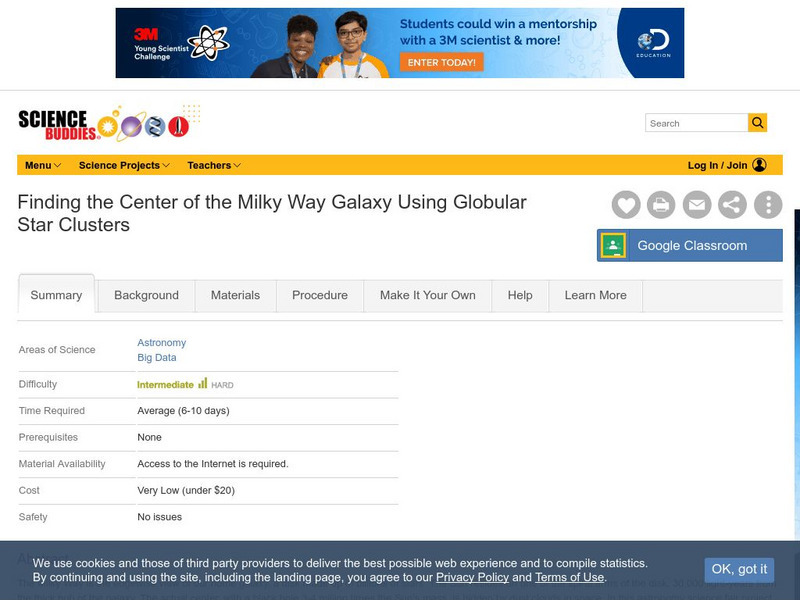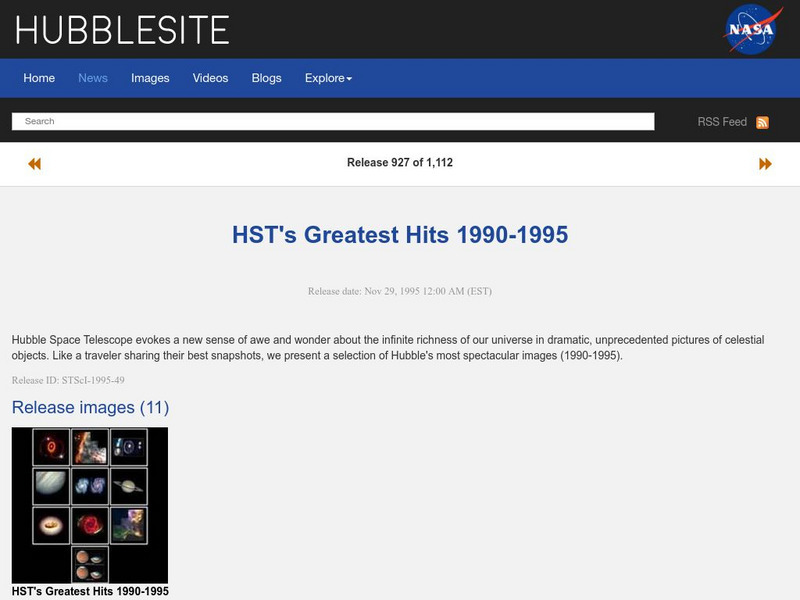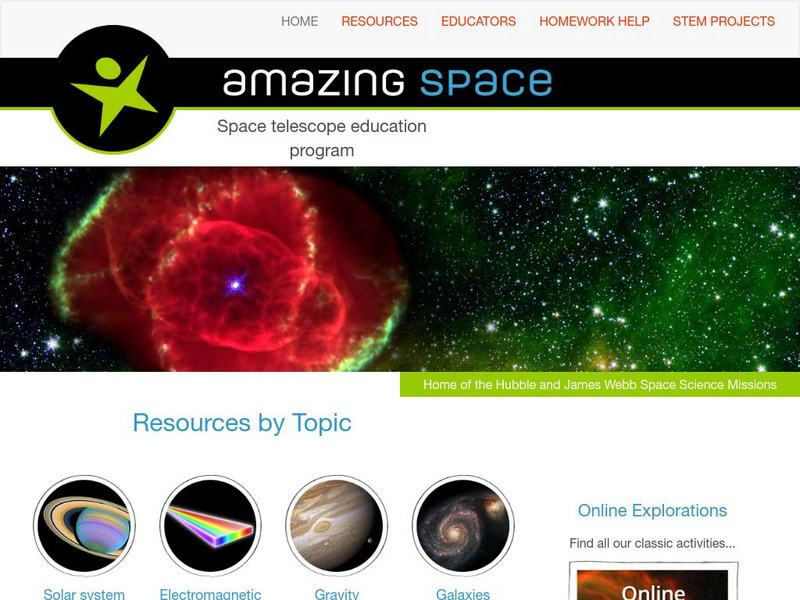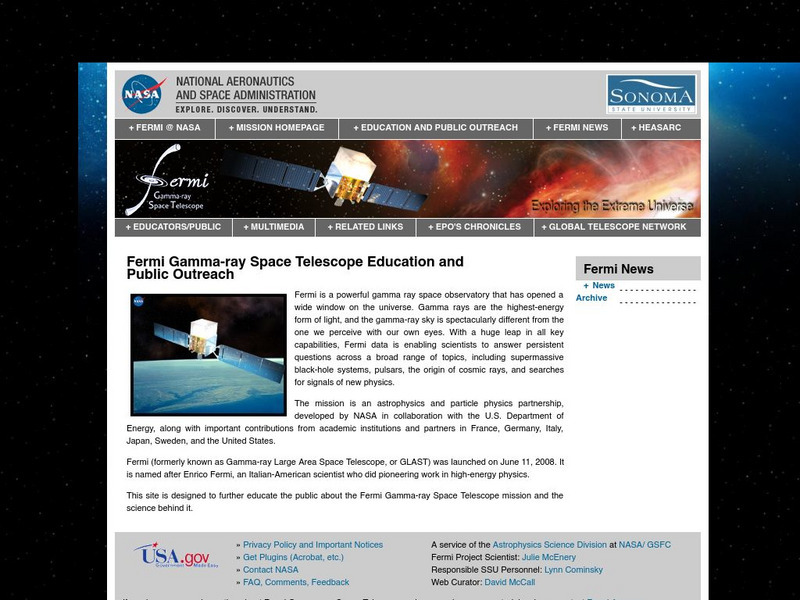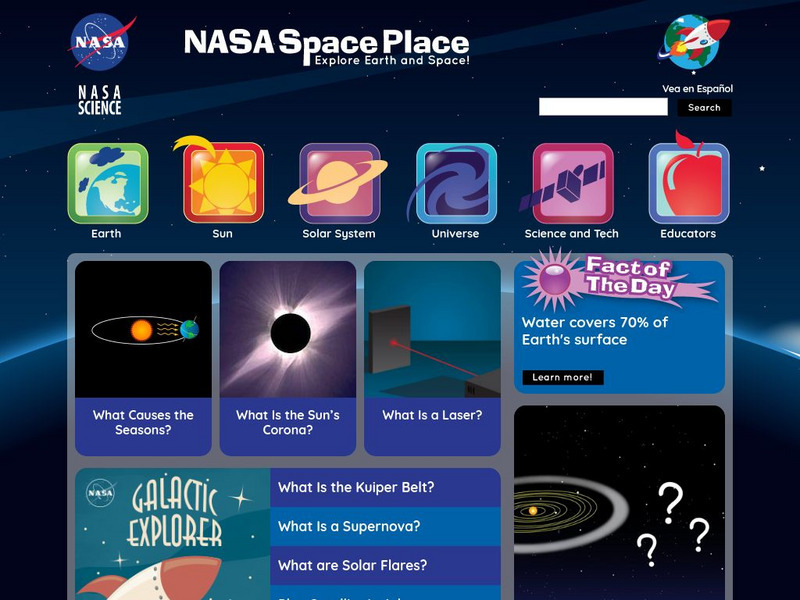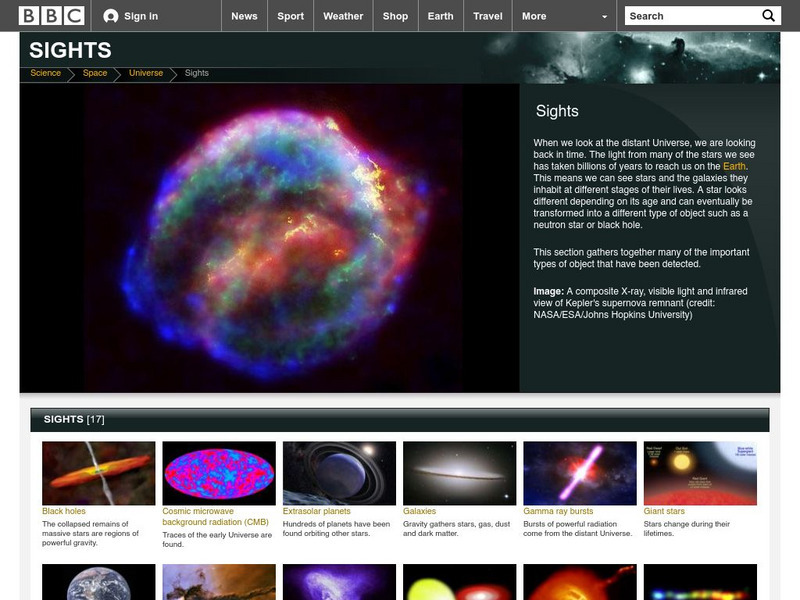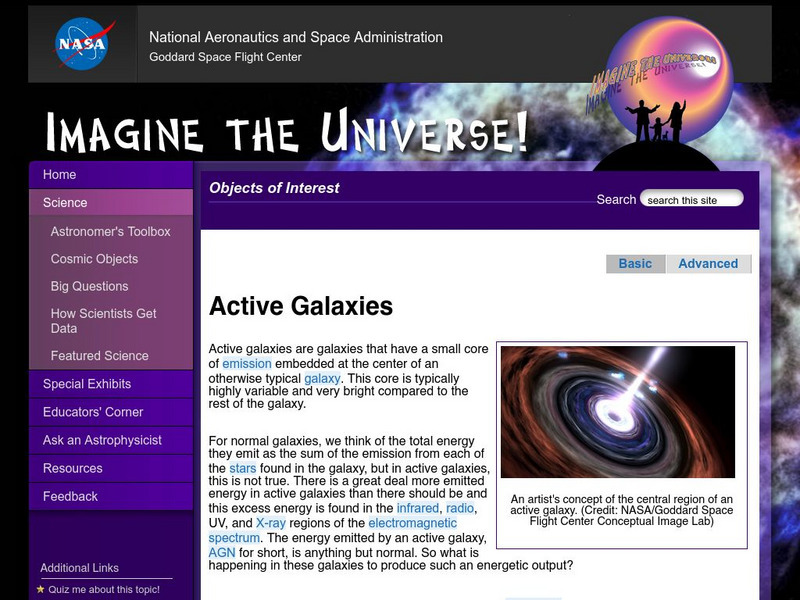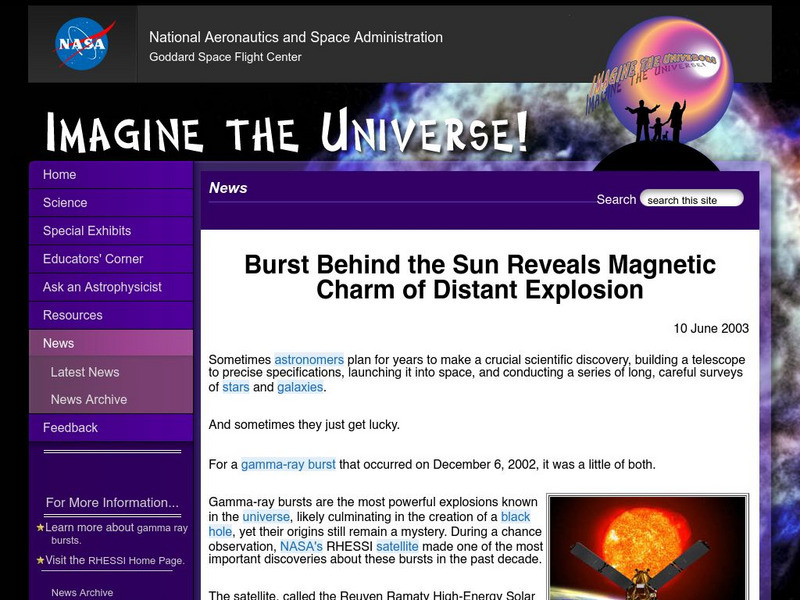Ducksters
Ducksters: Astronomy for Kids: Black Holes
On this site, you can learn about mysterious powerful forces that absorb light called black holes. Study the science of black holes in outer space.
NASA
Nasa: Image Science Center: Ask the Space Scientist
A NASA scientist, Dr. Sten Odenwald, answers many students' questions. Topics include planets, galaxies, black holes, the origin of the universe, and common misconceptions about space.
National Science Foundation
National Science Foundation: Astronomy and Space: Research Overview
Explore some of our most fundamental questions about space exploration with this research overview collected by scientists at the National Science Foundation. Additionally, experience deep space first-hand with telescope interactives.
BBC
Bbc Newsround: Top 5 Amazing Space Discoveries
Read about some of the most important space discoveries in recent times.
Science Buddies
Science Buddies: Find Center of Milky Way Galaxy Using Globular Star Clusters
The Milky Way is the edgewise view of our home galaxy, a disk made up of billions of stars. The Sun resides on one of the spiral arms of the disk, 30,000 light-years from the thick hub of the galaxy. The actual center, with a black hole...
Seeker
Seeker: 'Doomsday' Ripples Through Galaxy
Learn about a storm errupting in the Teacup Galaxy involving the explosion of a supermassive black hole.
Space Telescope Science Institute
Hubble Space Photographs: Hst's Greatest Hits 1990 1995
Breathtaking images from the Hubble Space Telescope give a new perspective to our world.
Space Telescope Science Institute
Space Telescope Science Institute: Amazing Space
Amazing Space promotes the "science and majestic beauty of the universe for use in the classroom." Here you can find learning activities, lesson plans, teaching guides, and helpful tips for students eager to learn about space and space...
Sonoma State University
The Gamma Ray Large Area Space Telescope (Glast)
Background information on gamma rays and the sources of gamma rays in the universe. Discusses the purpose of the GLAST space mission and the types of findings which they wish to make. A link to the GLAST movie provides an excellent...
Science Struck
Science Struck: The Concept of Negative Energy in Physics Simplified
An interesting and detailed discussion of negative energy, how its existence has been proven, and its possible future application in making interstellar space travel possible.
NASA
Nasa: The Space Place
This site from NASA's Space Place is geared towards early elementary learners. It offers detailed instructions for crafts and activities related to space, games and a teacher resource area. Students can also ask an expert at this site.
Other
Astromador: Astronomia Para Amadores
This resources focuses exclusively on astronomy. It's packed with historical facts about space exploration, famous people who pioneered the study of stars and planets. It features chronological list of space exploration, current news,...
BBC
Bbc: Wormholes
The BBC reveals what is known about wormholes, a possible consequence of Einstein's Theory of General Relativity in which space is bent, opening up the possibility of time travel.
Ducksters
Ducksters: Space Science: Astronomy for Kids
Kids learn about astronomy, the study of outer space including the stars, planets, comets, black holes, and the Solar System. History and astronomers in this astronomy for teachers and kids section.
NASA
Nasa: Imagine the Universe: Active Galaxies and Quasars
Describes quasars as being classified within the category of an active galaxy. A description of the emergence of high-energy. Definitions of key words are provided.gamma-ray quasars as an important component of the gamma-ray sky.
NASA
Nasa Star Child: Star Child
StarChild from NASA defines and describes the Solar System in a simple and easy-to-understand manner. The website is broken down into two versions for the student, grade school and junior high.
NASA
Nasa Space Place: What Is a Supernova?
Discover interesting facts about supernovas, what causes them, how bright they are, and how do scientists study them.
NASA
Nasa: Imagine the Universe: Imagine the Universe!
This helpful site provides everything you want to know about studying the universe. Take a look at the tools and methods scientists use to study the universe, discover some of the objects that make up our universe, learn how scientists...
NASA
Nasa: Imagine the Universe: "Burst Behind the Sun"
Site provides the article, "Burst Behind the Sun Reveals Magnetic Charm of Distant Explosion," that details on a gamma-ray burst that occurred on December 6, 2002. Provides graphics and links to learn more about gamma-ray bursts.






